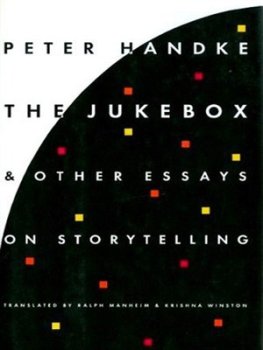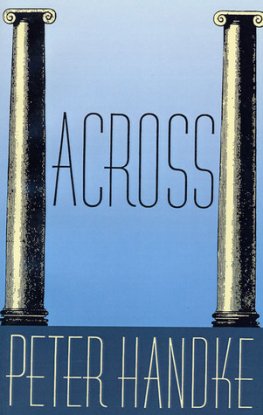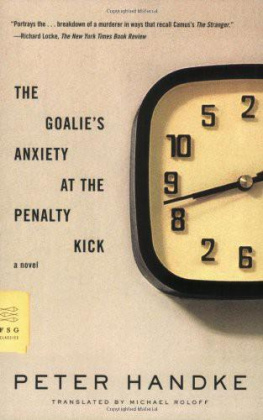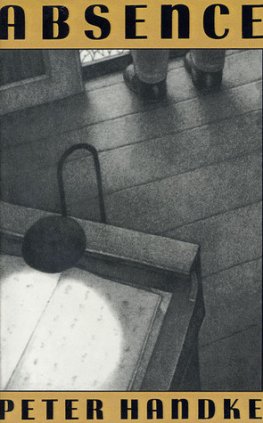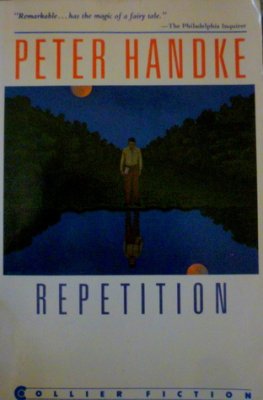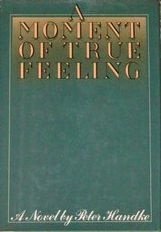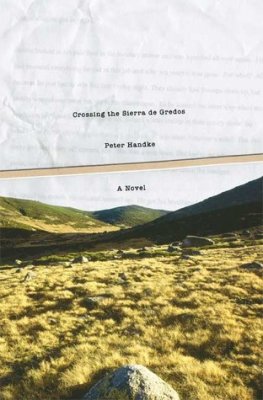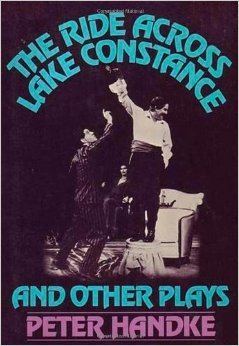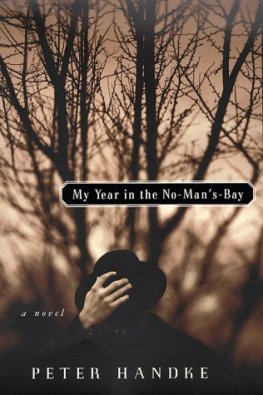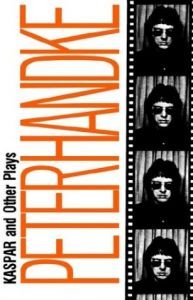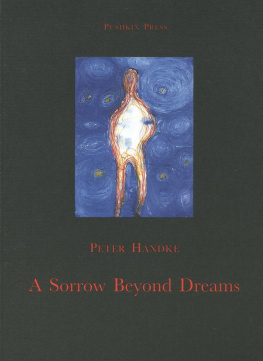Peter Handke
The Jukebox And Other Essays On Storytelling
In the past I knew tiredness only as something to be feared.
When in the past?
In my childhood, in my so-called student days, in the years of my first loves, then more than ever. Once during midnight Mass, sitting with his family in the densely crowded, dazzlingly bright village church, the child breathed in the smell of wax and woolen cloth and was overcome by a tiredness that struck with the force of a sickness.
What kind of sickness?
The kind that is said to be nasty or insidiousfor this was a nasty, insidious tiredness. It denatured the world around me, transforming my fellow churchgoers into felt-and-loden dolls that were hemming me in, transforming the resplendently decorated altar in the hazy distance into a torture chamber enhanced by the confused rituals and formulas of the servers, and the sick, tired child himself into a grotesque elephant-headed figure, as heavy and dry-eyed and thick-skinned as that animal. My tiredness removed me from the substance of the world, in the event the winter world of snowy air and solitary sled rides under the stars at night, after the other children had gradually disappeared into their houses, far beyond the fringes of the village, alone, winged with enthusiasm: utterly present, in the stillness, in the whirring of the air, in the blueness of the ice that was forming on the road it tingles is what we used to say of that pleasant cold. But there in the church the child, held fast by tiredness as in the grip of an Iron Maiden, experienced a very different kind of cold, so much so that in the very midst of the Mass he begged to go home, which just then meant no more than out. Once again I had spoiled one of my parents rare opportunities, becoming rarer as the old customs died out, for social contact with the neighbors.
Why must you always accuse yourself?
Because even in those days my tiredness was associated with a feeling of guilt, which intensified it and made it acutely painful. Once again I had failed my family: one more steel band tightened around my temples, a little more blood drained from my heart. Decades later, a feeling of shame comes back to me at the thought of that tiredness; but strangely enough, though my parents later reproached me with one thing and another, they never mentioned my attacks of tiredness.
Was the tiredness of your student days similar?
No. The guilt feelings were gone. In lecture halls, on the contrary, my tiredness made me angry and rebellious. Ordinarily, it was not so much the foul air, or being cooped up with hundreds of other students, as the lecturers lack of interest in what was supposed to be their subject. Never since then have I encountered a group of people so uninspired by what they were doing as those university professors and instructors; any bank teller counting out notes that dont even belong to him, any road repairer working in the overheated air between the sun overhead and the tar boiler down below seemed more inspired. Stuffed shirts, whose voices never vibrated with the astonishment (that a good teachers subject arouses in him), with enthusiasm, with tenderness, with self-doubt, anger, indignation, or awareness of their own ignorance, but droned incessantly on, intoned needless to say not in the deep chest tones of Homer, but in tones of examination-oriented pedantry, interspersed now and then with a facetious undercurrent or a malicious allusion addressed to those in the know, while outside the windows green went blue and finally darkened, until the students tiredness turned to irritation and his irritation to rage. And again as in childhood that feeling of Let me out! Away from the lot of you in here! But where to? Home, as in childhood? But there in my rented room, a new tiredness unknown in my childhood was to be dreaded: the tiredness of being alone in a rented room on the outskirts; solitary tiredness.
But what was to be dreaded about that? Wasnt there a bed right there in your room, along with the chair and the table?
An escape into sleep was out of the question. For one thing, that sort of tiredness brought on a paralysis in which it became virtually impossible to bend my little finger or even to bat an eyelid; my breathing seemed to stop and I froze inside and out into a pillar of tiredness. In the end, I dragged myself into bed, but after a quick fainting away from wakefulness with no sensation of sleep my first attempt to turn over shook me into a sleeplessness that usually went on all night. For, in my room alone, tiredness always set in late in the day, at dusk. Many others have spoken of insomnia, how it comes to dominate the insomniacs view of the world until, try as he may, he cannot help regarding existence as a calamity, all activity as pointless, and all love as absurd. The insomniac lies there waiting for the gray of dawn, which to him signifies the damnation not only of him alone in his insomniac hell but of all misbegotten humanity relegated to the wrong planet I, too, have been in the world of the sleepless (and even today I still am). In early spring the first birds are heard before dawn often enough bearing a message of Easter but today they screech derisively at me in my cell-bed: One-more-sleepless-night. The striking of the church clocks every quarter of an hour even the most distant ones are quite audible gives notice of another bad day. The bestiality at the heart of our world is manifested by the hissing and yowling of two battling tomcats. A womans sighs or screams of so-called passion start up suddenly in the stagnant air, as though a button had been pressed, setting some mass-produced machine in motion directly above the insomniacs head, as though all our masks of affection had fallen, giving way to panic egoism (thats no loving couple, only two individuals, each bellowing his self-love) and vileness. To those frequently afflicted by episodic states of sleeplessness, if I understand their stories right, such states may form a chain of continuity and come to be regarded as permanent.
But you, who are not a sufferer from chronic insomnia: are you planning to tell us about the insomniac view of the world or that engendered by tiredness?
As might have been expected, Ive started with insomnia and shall go on to the view resulting from tiredness, or rather, in the plural, I shall talk about the divergent views of the world engendered by different kinds of tiredness. How terrifying, for example, at one time, was the kind of tiredness that could crop up in the company of a woman. No, this tiredness did not crop up, it erupted like a physical cataclysm, a phenomenon of fission. And, as a matter of fact, it never confined itself to me alone, but invariably struck the woman at the same time, as though coming, like a change in the weather, from outside, from the atmosphere or from space. There we lay, stood, or sat, as though our being together were the most natural thing in the world, and then before we knew it, we were irrevocably sundered. Such a moment was always one of fright, even of horror, as in falling: Stop! No! Dont let it happen! But there was no help; already the two of us were irresistibly recoiling, each into his own private tiredness, not ours, but mine over here and yours over there. In this case, tiredness may have been only another name for insensibility or estrangement but for the pressure it exerted, its effect on the environment, tiredness was the appropriate word. Even if the phenomenon occurred in a large, air-conditioned cinema. The cinema became hot and cramped. The rows of seats became crooked. The colors and the screen itself took on a sulfurous hue, then paled. When we chanced to touch each other, both our hands recoiled as from an electric shock. In the late afternoon of the, a catastrophic tiredness descended out of a clear sky on the Apollo Cinema. The victims were a young couple sitting shoulder to shoulder, who were catapulted apart by a blast of tiredness. At the end of the film, which, incidentally, was entitled

